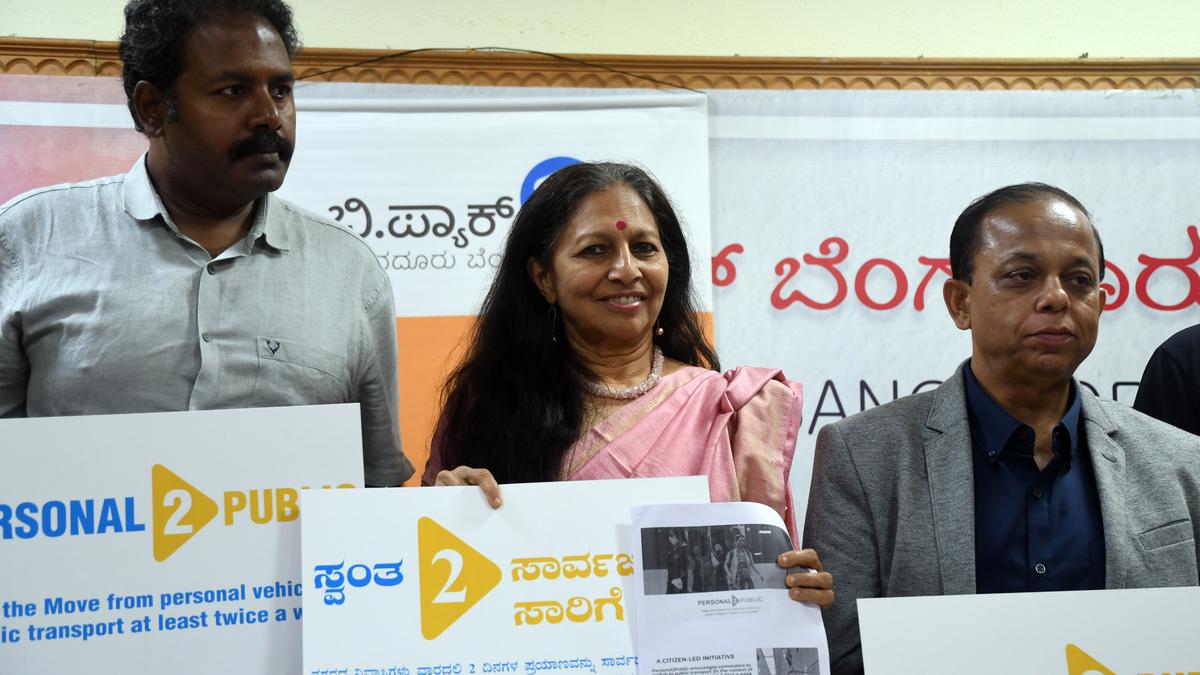
Bengaluru car users spend 1-1.5 hours in each direction: Personal2Public survey report
The Hindu
In Bengaluru, the average commute time for car users is typically observed to be a minimum of one hour when covering a standard travel distance of 10 kilometers while the car users spend about 1-1.5 hours in one direction as compared to 35-40 minutes by two-wheelers
In Bengaluru, the average commute time for car users is typically observed to be a minimum of one hour when covering a standard travel distance of 10 kilometers while the car users spend about 1-1.5 hours in one direction as compared to 35-40 minutes by two-wheelers, according to a report which is part of the Personal2Public campaign launched by NGOs, including the Bangalore Political Action Committee (B.PAC) and WRI India, released on Monday.
The report also reveals that metro users typically spend less than 45 minutes on their primary mode of transport. However, when factoring in the first and last-mile connections, the average travel time extends to approximately 1 to 1.5 hours. In contrast, commuters using company-operated transportation tend to experience longer commutes.
The report was done mainly aiming to reduce the usage of personal vehicles and encouraging office-goers to switch to metro rail at least twice a week. The campaign was launched in the backdrop of metro lines reaching Whitefield and Electronics City, which is expected to be operational in December.
As of August 28, a total of 3,855 individuals have participated in the feedback collection initiative for the report, with 9.7% identifying as metro users, 9% as bus users, and a significant 81.3% falling into the non-user category.
The survey reveals that nearly 60% of the respondents rely on personal vehicles for their daily commute, while the remaining respondents opt for various shared mobility options. The survey also highlights that the lack of seamless transportation connections is a major factor motivating respondents to choose personal vehicles as their mode of transport.
Srinivas Alavilli, fellow at WRI India, said, “The only long-term solution to our traffic problem is public transport. 2023 is going to be a milestone year for Brand Bengaluru, as metro connects Whitefield to the rest of the city. The responses have made it clear that Bengalureans will shift to public transport if we make their everyday travel reliable and seamless. As the Outer Ring Road (ORR) has maximum number of daily commuters, running faster feeder buses from Purple Line metro stations to tech parks on ORR will make a big difference. Our sincere appeal to commuters is to adopt public transport starting at least two days a week.”
Ashish Verma, convener, IISc. Sustainable Transportation Lab (IST Lab), said that for Bengaluru to have a sustainable mobility system, the city needs to achieve at least 80% daily trip mode share on public transport, walking, and cycling together. This is achievable through well-structured and methodological policy and planning interventions by government as well as strong campaigns like personal2public.













